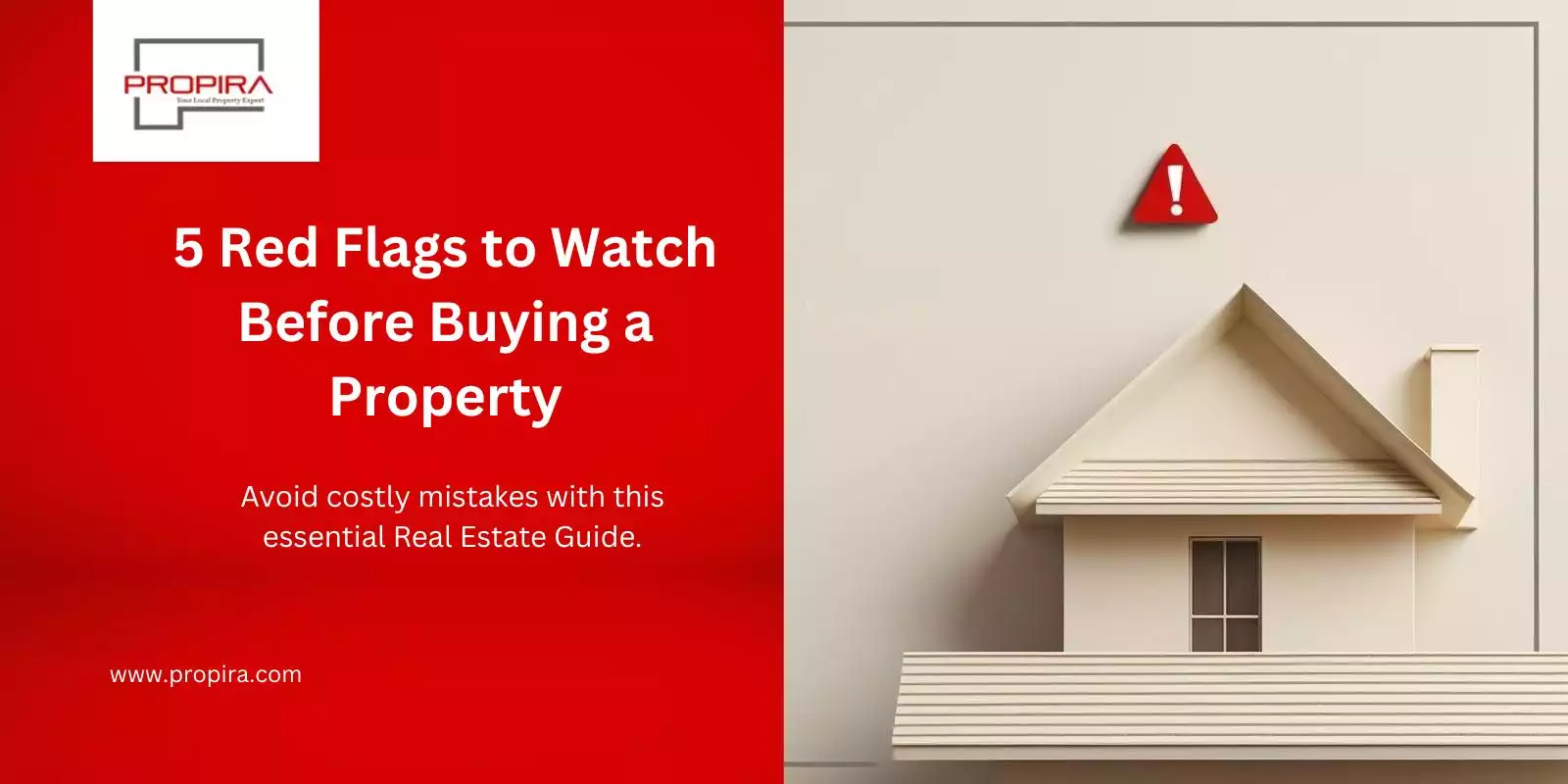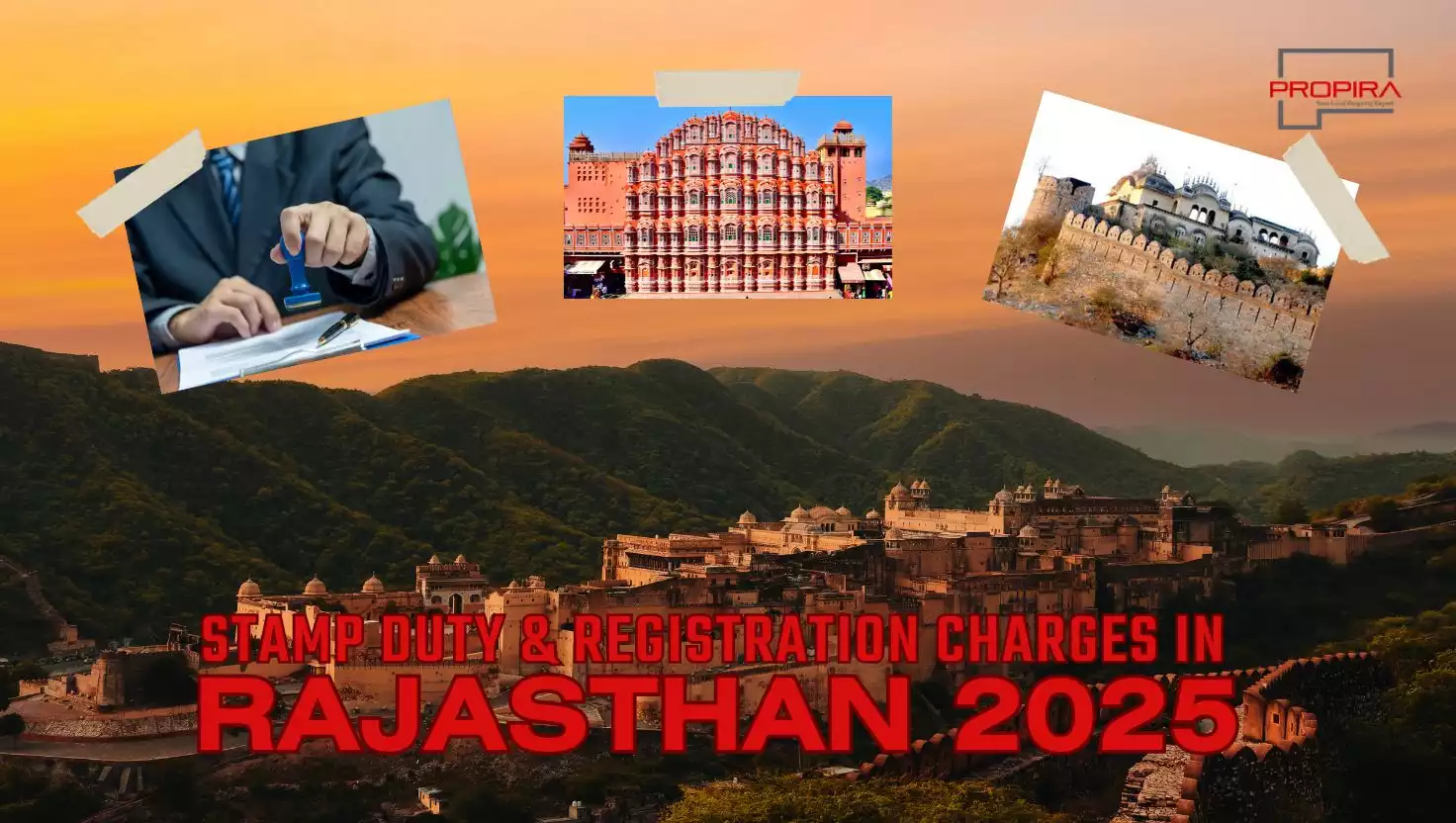
5 Red Flags to Watch Before Buying a Property
5 Red Flags to Watch Before Buying a Property

Buying a property is one of the most significant financial decisions a person makes in their lifetime. Whether it's your dream home, a commercial space, or an investment property, this process demands attention to detail, patience, and informed decision-making. Many buyers, however, fall into costly traps due to excitement or lack of awareness. These mistakes can lead to legal complications, financial losses, or years of frustration.
This blog highlights five critical red flags that you should be aware of before purchasing any property. These warning signs can help you avoid scams, poor investments, and unwanted surprises in the long run.
Red Flag 1: Unclear or Disputed Property Title
Why it's important:
The title deed is the legal proof of property ownership. An unclear or disputed title can mean that the property is involved in legal issues, owned by multiple heirs, or under litigation. Buying such a property can result in lengthy court cases or even loss of ownership.
Common signs to watch for:
-
Absence of the original sale deed or title documents
-
Claims from multiple family members or heirs
-
Pending court cases or legal notices
-
Mismatched names in ownership documents and government records
What to do:
-
Hire a legal expert to review the title deed
-
Ask for an encumbrance certificate from the sub-registrar’s office
-
Ensure there are no unpaid loans or mortgages on the property
-
Do not proceed if ownership is established through power of attorney only
Red Flag 2: No RERA Registration (for new or under-construction projects)
Why it's important:
The Real Estate Regulatory Authority (RERA) was established to promote transparency and protect buyers. Any residential or commercial project must be registered with RERA. A project not listed on the RERA portal may lack legal approvals or may be subject to delays, poor construction, or even fraud.
Common signs to watch for:
-
Builder avoids sharing the RERA registration number
-
Project is not listed on the official RERA website
-
Sales brochure lacks verified information and timelines
-
Unclear project approvals or legal permissions
What to do:
-
Visit the RERA website of your state and search for the builder and project
-
Verify all registration documents, layout plans, and completion dates
-
Avoid investing in unregistered or pre-launch projects without legal backing
Red Flag 3: Poor Location and Lack of Infrastructure
Why it's important:
A property in a poorly connected or underdeveloped location may cost less initially but could result in inconvenience, lower rental income, and difficulty in resale. Accessibility to transportation, schools, hospitals, and markets directly impacts property value and livability.
Common signs to watch for:
-
Remote area with no nearby public transport
-
Absence of proper roads, water supply, electricity, and drainage
-
No schools, hospitals, or shops within a reasonable distance
-
Poor safety, water logging, or high crime rate in the neighborhood
What to do:
-
Visit the property site in person, both during the day and after dark
-
Study the development plans of the local authority or municipal body
-
Use online maps and platforms to assess proximity to essential services
-
Ask local residents about the area’s infrastructure and future potential
Red Flag 4: Unrealistic Pricing and Overpromising
Why it's important:
Offers that sound too good to be true usually are. Low rates, free gifts, or guaranteed returns are often marketing tactics used to attract buyers. Properties sold at prices far below market value may come with hidden charges, legal issues, or poor construction quality.
Common signs to watch for:
-
Prices that are significantly lower than similar properties in the area
-
Pressure to book quickly with "limited time" discounts
-
Verbal promises of high rental returns or future developments
-
Lack of clarity on carpet area, super built-up area, and pricing structure
What to do:
-
Compare rates with other projects in the same area
-
Request a written cost breakdown including GST, maintenance, and registration
-
Ask for all verbal commitments to be included in the written agreement
-
Consult an independent property advisor or consultant
Red Flag 5: Poor Builder Reputation and Project History
Why it's important:
The credibility of the builder or developer plays a crucial role in your property's future. A builder with a history of delayed projects, incomplete construction, or legal disputes can cause long-term financial and emotional stress.
Common signs to watch for:
-
Limited or no completed projects in their portfolio
-
Customer complaints, poor reviews, or unresolved disputes
-
Lack of transparency in dealing with customers
-
Projects abandoned midway or completed without proper certifications
What to do:
-
Research the builder’s previous projects and delivery timelines
-
Read online reviews and ratings on trusted property forums
-
Visit completed properties to assess construction quality
-
Check for occupancy certificate (OC) and completion certificate (CC) before finalizing
Additional Red Flags to Consider
Apart from the above five, here are a few more red flags that are often ignored:
-
No Occupancy Certificate for ready-to-move-in flats
-
Illegal construction or violation of zoning laws
-
Unapproved layouts by the local development authority
-
Hidden charges in sale agreements or builder contracts
-
Brokers without valid registration or credentials
Always read the sale agreement in detail, and do not hesitate to walk away if something seems suspicious or unverified.
Conclusion: Stay Informed and Protected
Buying a property is not just about finding the right home or investment—it's also about avoiding the wrong one. These red flags are warning signs that signal the need for deeper investigation and caution. Skipping proper checks can lead to financial setbacks, legal battles, or even the loss of your investment.
To summarize, here are the five main red flags again:
-
Unclear or disputed property title
-
No RERA registration for new or under-construction projects
-
Poor location and lack of essential infrastructure
-
Unrealistic pricing and marketing traps
-
Builder with poor reputation and past delivery issues
By taking your time, conducting proper due diligence, and consulting professionals, you can ensure that your property investment is safe and rewarding.
Looking for verified properties, trusted agents, and project insights in Tier-2 cities like Ajmer, Alwar, and beyond? Visit Propira.com – your reliable partner for smart real estate decisions.










Write Comment